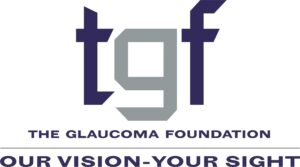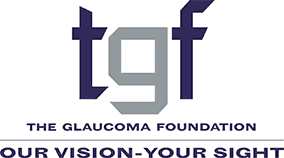Summary
Glaucoma doesn't just affect your eyes, it rewires the way your entire body manages stress, inflammation, and cellular strain. That means supporting your long-term eye health calls for more than drops and pressure checks.

*Before adding any new supplements to your routine, check with your doctor—especially if you have an existing health condition or are taking prescription medications.
Glaucoma doesn’t just affect your eyes, it rewires the way your entire body manages stress, inflammation, and cellular strain. That means supporting your long-term eye health calls for more than drops and pressure checks. It’s about strengthening the systems that feed and protect your optic nerve. Supplements, when chosen well, can play a powerful, supporting role. But it’s not about throwing everything at the wall. It’s about understanding what your body needs most, and choosing ingredients that build resilience from the inside out.
Longevity Boosters
Long-term vision health starts at the cellular level. For people with glaucoma, preserving optic nerve function over time is key, and recent findings suggest that supplementing with vitamin D may slow cellular aging by supporting telomere length and reducing chronic inflammation. That’s not just about aging slower, it’s about keeping your internal systems more adaptable, less inflamed, and better able to protect eye tissues. Vitamin D is particularly relevant in glaucoma, where vascular health and immune function intersect. While sunshine helps, many people, especially older adults, need a daily supplement to reach optimal levels. It’s a quiet foundation-builder, helping the rest of your routine hold together with more stability.
Cellular Energy & CoQ10
Mitochondrial dysfunction has been linked to the progression of glaucoma. That makes CoQ10 especially valuable, not just for heart health, but for energy regulation at the cellular level. By assisting in ATP production, CoQ10 protects mitochondria and the heart, and it may also help defend the retinal ganglion cells that are gradually lost in glaucoma. For those on statins or managing blood pressure, CoQ10 becomes even more relevant. A typical starting dose is 100–200mg daily with food. It won’t create a dramatic change overnight, but over time, it may reduce fatigue, improve circulation, and subtly protect sensitive tissues, especially those that depend on stable oxygen flow.
Nutrient Gaps After 60
Glaucoma risk increases with age, and as nutrient absorption shifts, so do your needs. Essential vitamins and minerals become harder to absorb, especially B12 and vitamin D, which are key for nerve and vascular support. Supplements older adults commonly lack, like omega‑3s, calcium, and vitamin C, also play roles in eye pressure regulation, capillary health, and oxidative defense. For example, vitamin C has been studied for its potential to lower intraocular pressure, while omega‑3s may improve retinal blood flow. Supplementing these isn’t about being “deficient,” it’s about being proactive. Even small gaps can accelerate pressure-related damage if left unchecked.
NAD and Cell Repair
Vision loss in glaucoma involves more than just pressure, it’s about gradual, unrelenting nerve damage. That’s where NAD comes in. This coenzyme fuels mitochondrial repair and supports cellular cleanup, potentially offering protection against neurodegenerative processes tied to optic nerve decline. If NAD can support cellular repair, it could also help maintain cellular energy in the retina and slow oxidative stress. While clinical data is still emerging, early users report benefits in focus, mood, and recovery. If you’re juggling multiple eye treatments, NAD may help your system bounce back from stress with greater resilience. Just be sure to source from reputable brands, as quality control varies.
Zinc for Healthy Aging
Zinc plays a pivotal role in immune regulation and retinal health, and its relevance to glaucoma shouldn’t be underestimated. It supports the function of antioxidant enzymes like superoxide dismutase, which protect sensitive ocular structures from damage. In recent studies, zinc linked to healthy immune aging also showed ties to reduced biological aging markers, which can influence eye tissue vulnerability. Zinc supplementation can be tricky, too much may compete with copper, but in moderate doses (15–30mg), it’s generally safe and supportive. Look for forms like picolinate or citrate, and consider pairing with copper if used long-term. Especially for those with slow-healing or chronic inflammation, zinc may help fill the gap.
Ginger and Antioxidant Support
Inflammation drives much of the damage in glaucoma, so daily anti-inflammatory support can be key. That’s where ginger shines. Beyond its digestive perks, studies now show ginger fights age-related inflammation at multiple levels, including markers relevant to neuroinflammation and oxidative stress. For people managing eye pressure and vascular tension, this could offer a subtle layer of systemic support. Ginger is easy to integrate, capsules, tea, or grated fresh into meals. It’s not a cure, but it’s a reliable daily helper. One that tastes good, works quickly, and doesn’t interfere with medications.
Supergreens and Gut-Immunity
If you’re taking eye medications, managing stress, and juggling doctor visits, nutrition often takes a backseat. That’s where a nutrient‑dense greens powder blend can help. Super greens offer a concentrated source of antioxidants, like lutein, spirulina, and wheatgrass, that support both immune health and eye function. When paired with probiotics and digestive enzymes, they also improve nutrient absorption, which matters more than most people realize. After all, if your gut isn’t absorbing vitamin C, B12, or magnesium effectively, no supplement will help. Look for blends with no added sugars, low oxalates, and a full-spectrum probiotic profile. Learn more here.
Managing glaucoma isn’t just about lowering pressure. It’s about raising your baseline. That means building an internal environment that’s resilient, well-fed, and inflammation-aware. These seven supplements won’t replace your treatments, but they may strengthen their impact by supporting the bigger picture. More stable energy. Less oxidative stress. Fewer nutritional gaps that leave your eyes and nerves exposed. Choose what fits your needs, introduce them one at a time, and track how you feel, not just in your eyes, but in your day-to-day stamina. Vitality, for someone managing glaucoma, isn’t just a buzzword. It’s a quiet, persistent defense—and supplements like these can help you build it.
*As always, consult your healthcare provider before introducing any new supplements, particularly if you’re managing other conditions or on medication.
Discover the latest advancements in glaucoma research and support a brighter future by visiting The Glaucoma Foundation today!
Article written by Camille Johnson
Exclusively for

